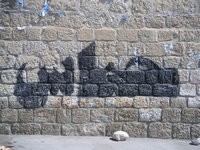As the ground continues to shift in the Middle East, the cracks that have long existed inside the Palestinian Islamist group Hamas are coming to the surface. The growing divisions could split the organization, but they have wider implications. Hamas’ alliance with Tehran is becoming increasingly untenable. Long a fixture of the modern Middle East, the four-member bloc comprised of Iran, Syria, Hamas and Hezbollah is slowly coming apart.
The strains of adapting to the changing regional landscape are showing in Hamas' two-tier leadership, divided between those in exile and those who remain in the Palestinian territories. In recent months, with the group facing increasingly difficult decisions, the factions have started to disagree in public more than ever.
Hamas leaders have openly criticized one another over the reconciliation plan with Palestinian Authority President Mahmoud Abbas and his rival Fatah party. And the competing Hamas factions have been crossing onto each other's policy turf, pursuing competing, mutually exclusive agendas.

